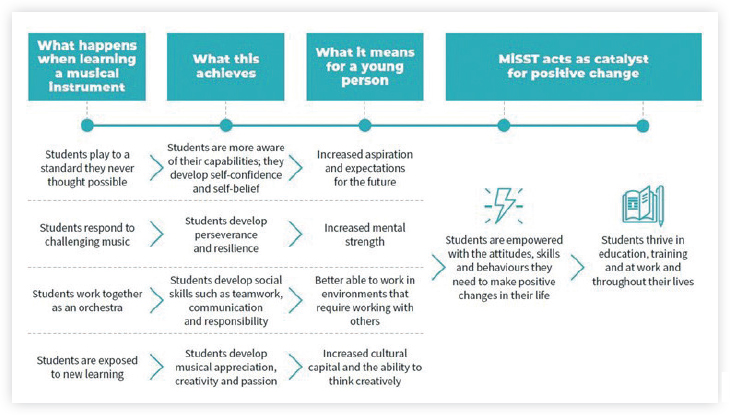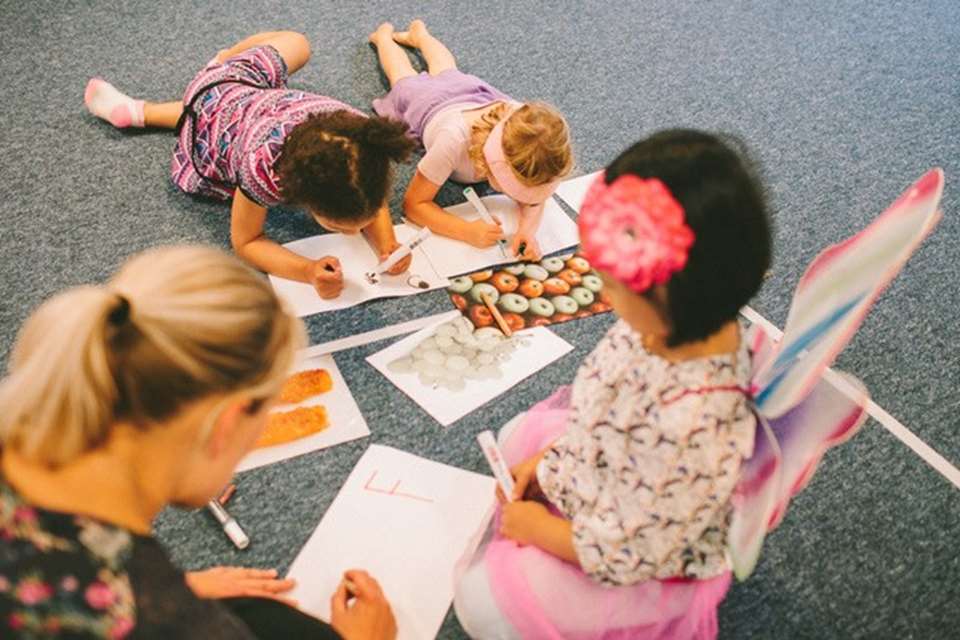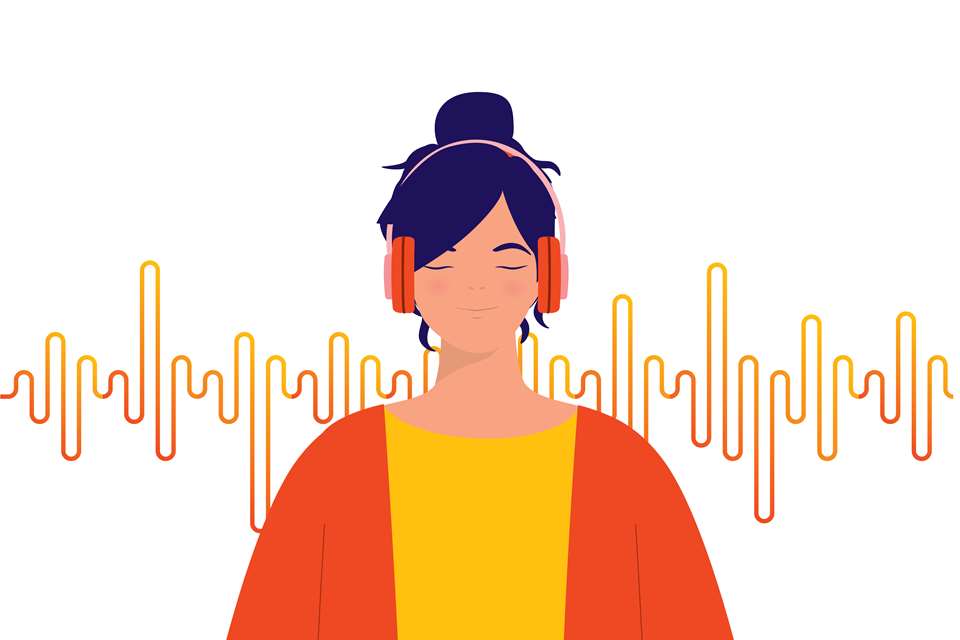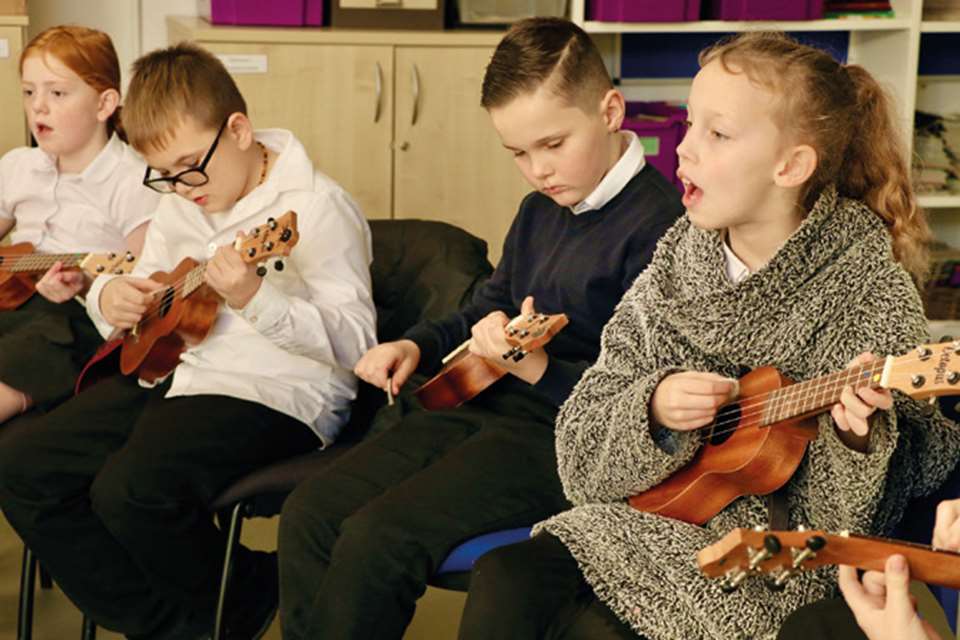Mental health and wellbeing column: Enrichment from music
Natalie Wild
Saturday, July 1, 2023
Ensuring young people are offered enrichment pays significant dividends. Here, Natalie Wild, director of research and professional development at the Music in Secondary Schools Trust, reveals the levelling effect of learning an instrument.

Adobe Stock / Deagreez
Pierre Bourdieu identified three types of capital – economic, social and cultural – that can impact an individual's success and status in society. For young people, possessing all three is critical for life outcomes and wellbeing. Economic capital refers to financial resources; social, to connections and relationships; and cultural, to knowledge and skills acquired through experiences and socialisation. Young people from higher-income families, who clearly enjoy a high level of economic capital, also have social and cultural advantages owing to their families' networks and resources. This month's column investigates the role an instrumental musical education can play in offering young people enrichment in all three types of capital, aiming to improve the long-term outcomes for those from all backgrounds.
Core purpose
Recent research conducted by the Northern Powerhouse Partnership and FFT Education Datalab reveals that young people who received free school meals for an extended period face long-term economic disadvantage. 29% of these pupils receive workless benefits at age 22, indicating significant barriers to entering the workforce, and poor wellbeing. These pupils are also 23% less likely to be in higher education or long-term employment compared to their more economically advantaged peers, highlighting the persistent attainment gap in England.
Behind every decision MiSST makes is our Theory of Change. This outlines our core purpose: to close the stubborn disadvantage gap for the young people we work with, thereby improving life outcomes regardless of a child's background or starting point. A large part of MiSST's work focuses on enriching students' education with a programme that builds a community of sharing and collaborating, with instrumental music used as the vehicle. Studies have shown that students who feel part of a school community are likely to experience more positive mental health both at school and in the future (Aldridge and McChesney, 2018: ‘The relationships between school climate and adolescent mental health and wellbeing’, International Journal of Educational Research). This in turn leads to higher levels of self-esteem and self-efficacy. By focusing on this sense of community, MiSST equips young people with important life skills, consequently increasing their cultural and, to some extent, social capital in a way that is not dependent on their economic situation.
Educational outcomes
While MiSST primarily aims to build community-minded, confident and empowered young people able to thrive regardless of background or starting point, we cannot ignore that educational attainment has a direct link to future earning potential and life outcomes. It is therefore extremely encouraging that our data reveals that students eligible for pupil premium who learn an instrument on the Andrew Lloyd Webber Programme (MiSST's core music curriculum) achieve just as well as their peers in their assessments throughout Key Stage 3. Learning an instrument can achieve a levelling effect on assessment outcomes, mitigating against the economic inequalities that have become persistent over the last 13 years.
 © MISST
© MISST
MiSST's Theory of Change
In the 2019 Andrew Lloyd Webber Programme (ALWP), more than 31% of its Year 7 cohort (1993 students) was eligible for Pupil Premium – significantly more than the national average of 17.3% from that year. MiSST collects the assessment data for each year group and can analyse it through several socio-economic indicators, including pupil premium eligibility, EAL and SEND. Our data shows that there has been no discernible difference between students facing an economic disadvantage and their peers across their three years on the ALWP. In spite of the severe disruption to learning faced by many young people at the time owing to the pandemic, results remained broadly equitable. Our hope is that this levelling out in educational outcomes will continue, leading to a levelling out in aspirations and therefore economic capital.
Further opportunities
In order to best prepare our young people for a more equal future, we must also present opportunities to enrich cultural capital. On 24 April 2023, 267 students from all 26 MiSST partner schools came together for our 10th Anniversary Concert at Theatre Royal, Drury Lane. For many students this was the first time they had ever visited London. For even more, it was the first time they had visited a theatre, let alone performed on the stage of one. This is just one example of the many opportunities available to all students, regardless of background or prior experience. Opportunities like this, combined with the encouraging performance data, gives hope that we can improve the life outcomes of thousands of students, closing the disadvantage gap through the power of music.








